
Integrating work and play, people and land, heart and mind.
Matfield Green is a small town in the Flint Hills of Kansas.
The town’s high school closed in 1968 (and was later demolished) while the adjacent grade school building remained open until 1975 and was most recently privately owned and in decline. In April 2019, with the support of Third Coast Activist Resource Center (an organization that works closely with the Land Institute), we acquired this building and incorporated as a non-profit in the following year. Improvements since then include: new electrical panels, masonry work, new septic system and plumbing, exterior door replacement/repair, new gymnasium windows and frames, new roof over the gymnasium and additional roof repair, refinished wood floors, track lighting, new swings and rebuilt teeter-totters, native landscaping, cutting down and planting trees, painting, and much more.
Ongoing developments include window repair, and preparing ground for future vegetable gardens and orchard. Our most urgent need going forward is a heating system for the building. We are researching ways to heat the building with local energy (wood and solar) and limit our use of fossil fuels. Please consider a donation or contact us to learn more.







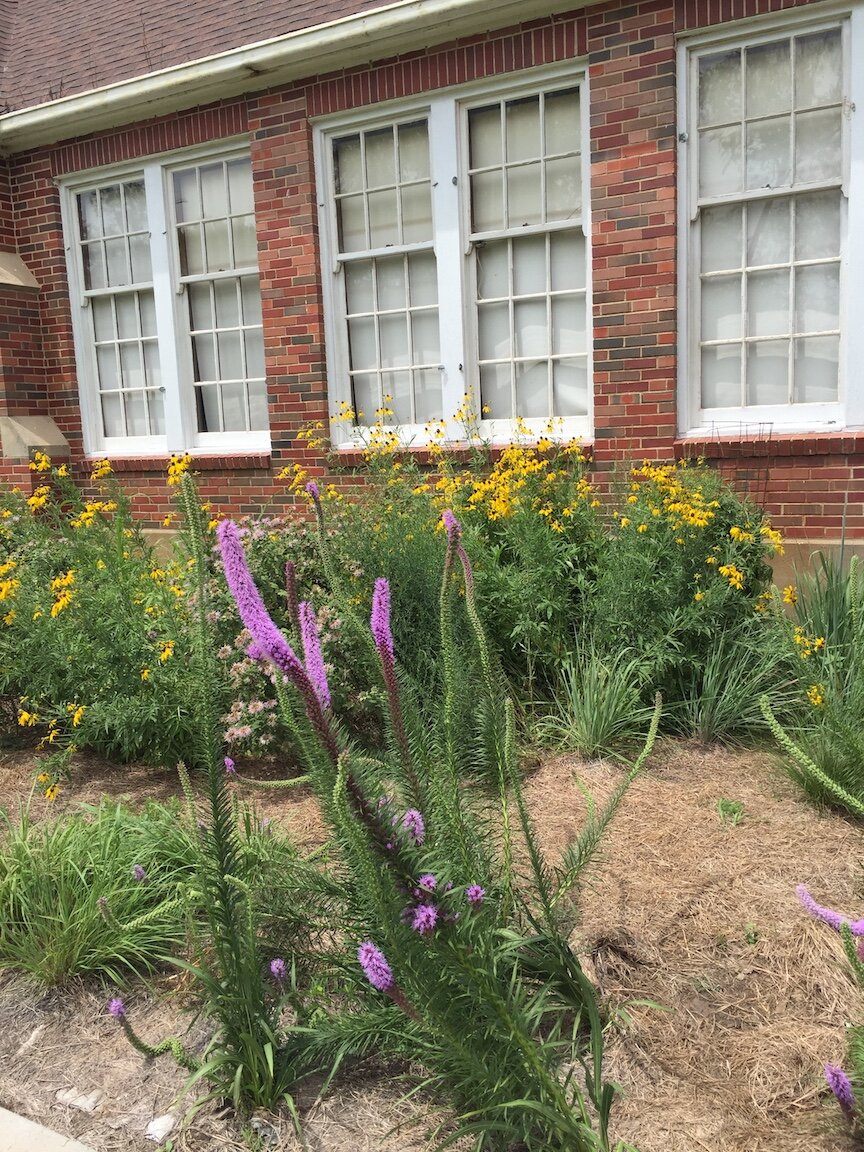




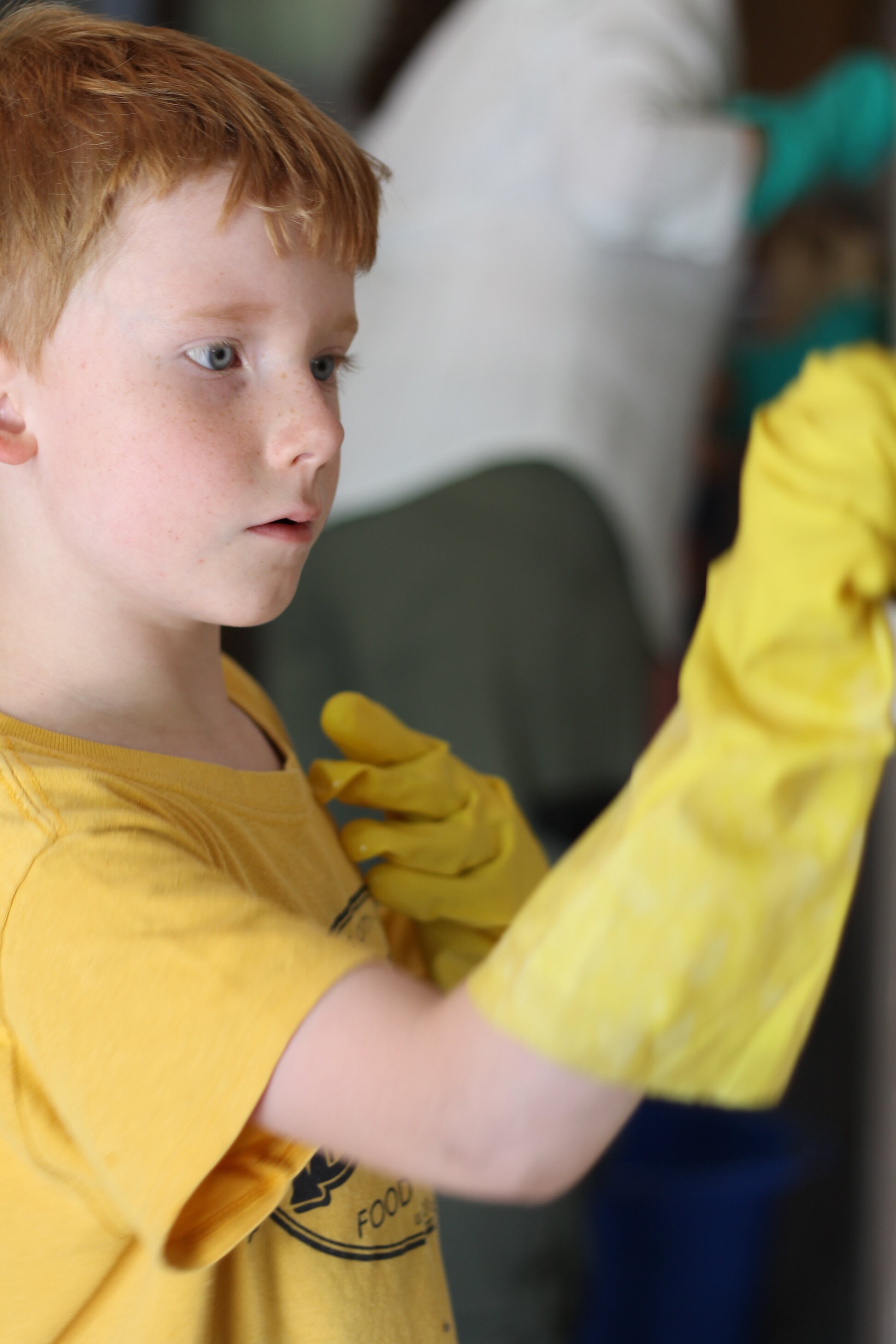

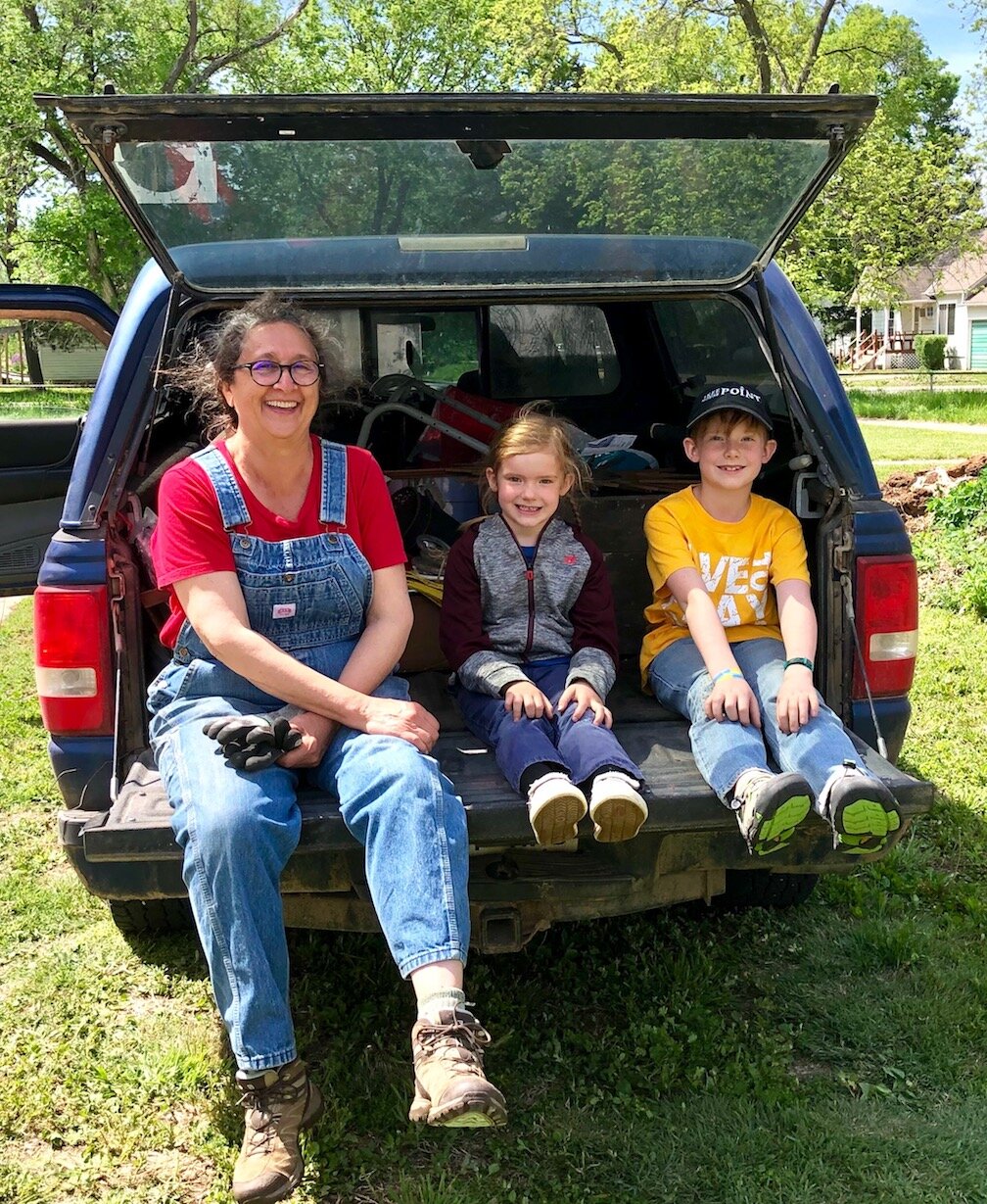





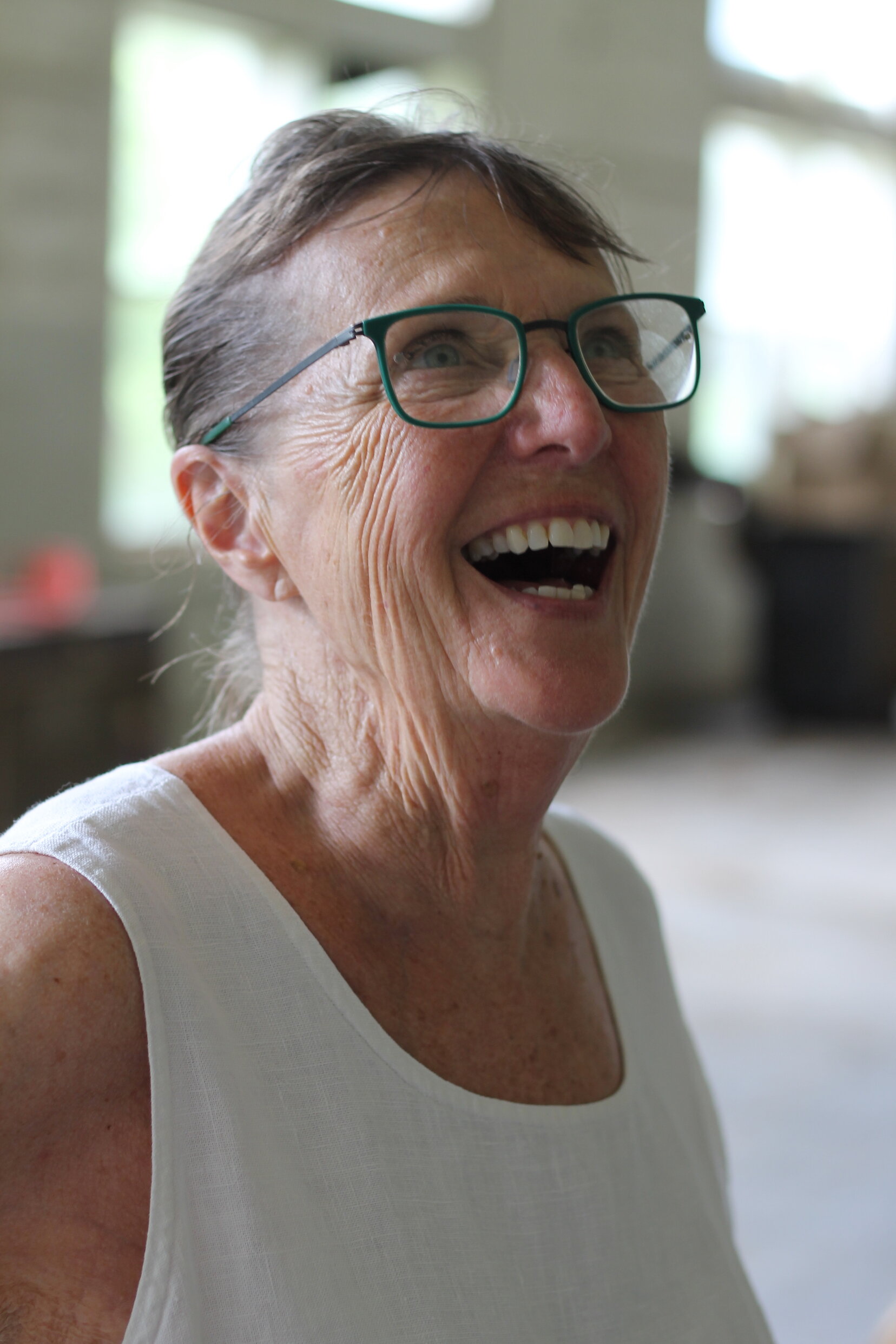



CURRENT (AND DEVELOPING) PROJECTS:
A maintained playground and open green.
Gymnasium for recreation, exercise and community gathering. This is also our primary performance space for concerts, readings, lectures, and public gatherings.
Printmaking studio: a resource for the community and the working studio of Matthew Regier
Studio space for Incidental Wildland, a custom sewing business by Chase county resident Bria Fleming.
Exhibition space in The School’s hallway.
Native landscaping of tallgrass prairie species, many of which have been propagated from locally collected seed.
Kids playroom and reading area.
Community library, specializing in books related to ecology, grassland ecosystems, agriculture, regional history, sustainable economics, art, literature, philosophy and more.
FUTURE PROJECTS:
Community Demonstration Gardens modeling techniques for small agriculture including cover crops, rainwater collection, drip irrigation, companion planting, and season extension through low and high tunnels.
A small orchard of apple and pear trees with an eye towards cider pressing.
A community kitchen to facilitate events and be used for canning or preservation.

Ben Cosgrove performing at the Tallgrass Artist Residency Symposium and Exhibition in October, 2021. Installation by Chelsey Beckers in foreground.

"She Moved the Prairie" a sociocultural dance film by Cheyla Chandler shown at the Tallgrass Artist Residency Event in October 2021.

Hosting staff and interns from The Land Institute for lunch and a tour of The School and Matfield Green in November 2021.

The gymnasium's open space (and stage) is ideal for larger gatherings, events, performances, and fiercely competitive pick-up games. Photo by Elise Kirk.

Community time in the gym, November 2021.

Socially distanced Movie on the Green - August 2020

Tallgrass Artist Residency Reception - October 2019

Bria's Fleming's custom sewing for wildland firefighters, operating out of the east classroom. incidentalwildland.com

Tallgrass Artist Residency Exhibition - October 2019
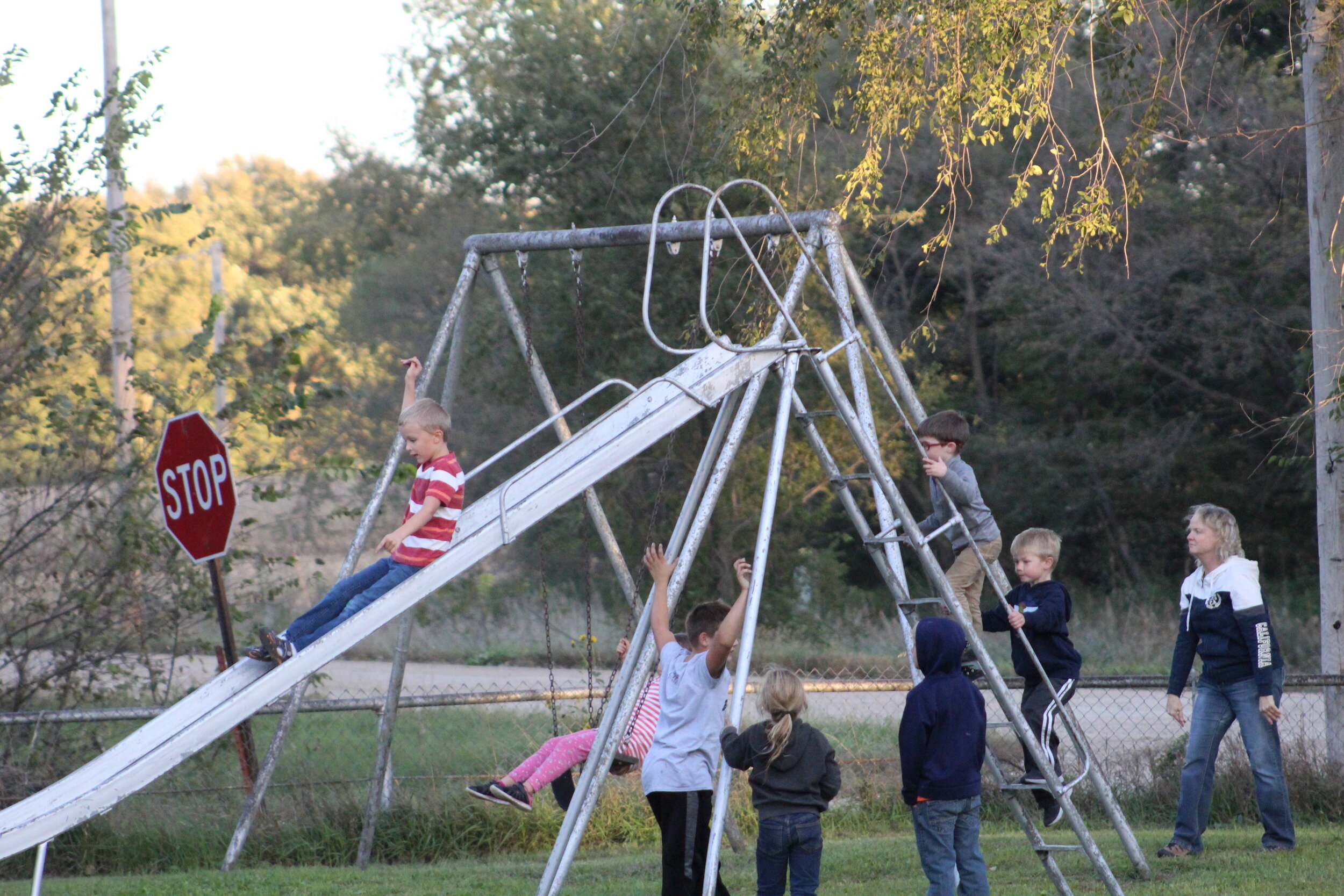
Slideshow (photo by Ken Gruchowsky)

Lawn-game extravaganza - April 2021

Future home of the printmaking studio.

Future library.

Printmaking Studio, December 2021.

New etching press at the Printmaking Studio.
